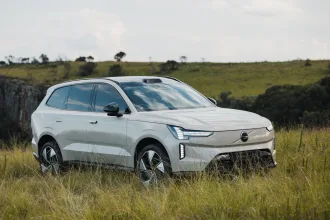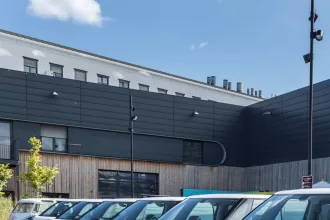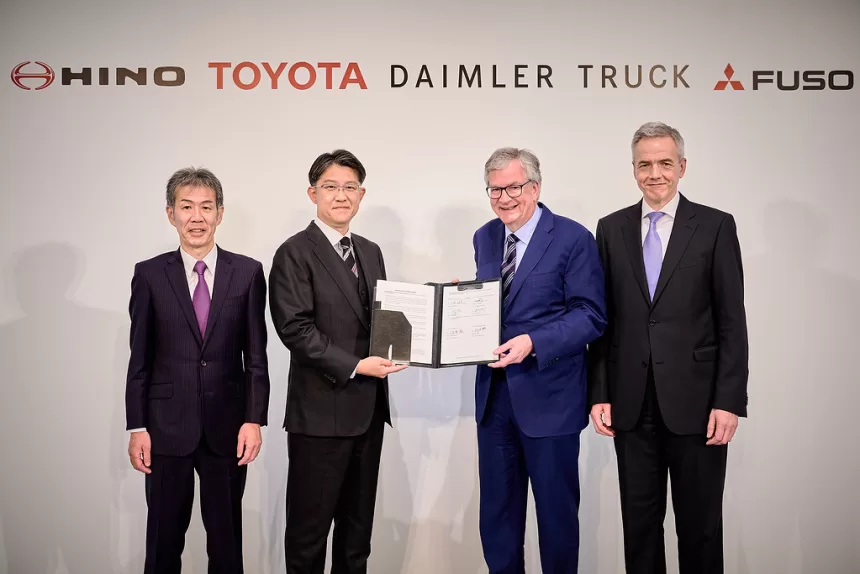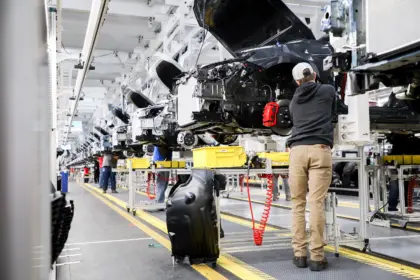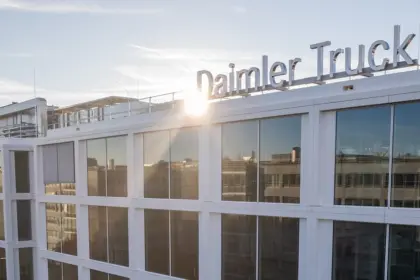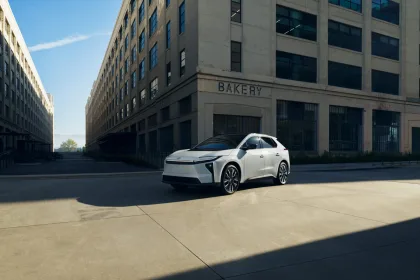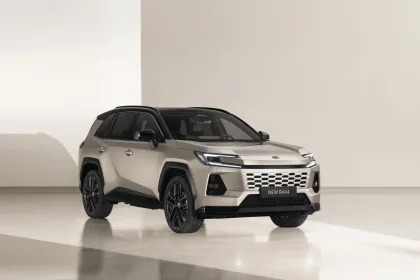- Daimler Truck and Toyota Motor Corporation conclude MoU on accelerating development of advanced technologies
- MFTBC and Hino to be merged on equal footing
- Aiming for transaction by end of 2024
Daimler Truck Holding AG (“Daimler Truck”) Mitsubishi Fuso Truck and Bus Corporation (“MFTBC”), Hino Motors Ltd. (“Hino”) and Toyota Motor Corporation (“Toyota”) today concluded a Memorandum of Understanding (MoU) on accelerating the development of advanced technologies and merging MFTBC and Hino.
Collaboration details:
Daimler Truck, MFTBC, Hino, and Toyota will collaborate toward achieving carbon neutrality and creating a prosperous mobility society by developing CASE technologies (Connected/Autonomous & Automated/Shared/Electric) and strengthening the commercial vehicle business on a global scale.
- MFTBC and Hino will merge on an equal footing and collaborate in the areas of commercial vehicle development, procurement and production. They will build a globally competitive Japanese commercial vehicle manufacturer.
- Daimler Truck and Toyota will equally invest in the (listed) holding company of the merged MFTBC and Hino. They will collaborate on the development of hydrogen and other CASE technologies to support the competitiveness of the new company.
Common to the corporate philosophies of all four companies is the desire to contribute to a prosperous society through mobility. To continue to be an essential force of transformation in the world, the four companies intend to promote the use of environmentally friendly vehicles and increase the value of mobility in the world’s social systems.
By joining forces, MFTBC and Hino would create synergies and enhance the competitiveness of Japanese truck manufacturers, helping to strengthen the foundation of the Japanese and Asian automotive industries and contributing to their customers, stakeholders and society.
Both Daimler Truck and Toyota count global full lineups tailored to local needs among their corporate strengths and—toward achieving carbon neutrality—value multi-pathways that provide diverse options based on local conditions and how their customers use vehicles.
Martin Daum, CEO of Daimler Truck: “We at Daimler Truck are very proud of our products, because trucks and buses keep the world moving. And soon they will even do so with zero emissions. So there is a great future ahead – and today’s announcement is a crucial step in making that future work economically and in leading sustainable transportation. The planned new company will be a major force in Southeast Asia and an important associate of the Daimler Truck family.”
Koji Sato, CEO of Toyota Motor Company: “This collaboration among our four companies is a partnership for creating the future of commercial vehicles in Japan and the future of mobility society. Our four companies will work together with a shared vision of achieving carbon neutrality by strengthening CASE technologies and of changing the future of commercial vehicles and building the future together by solving social issues.”
Karl Deppen, CEO of MFTBC:“This close collaboration will enable us to accelerate the decarbonization of the transportation industry, creating an even stronger Japanese commercial vehicle manufacturer. Under the two well-established brands of FUSO and HINO, we will continue to take a leading role in serving customer needs in Japan, Asia and beyond.”
Satoshi Ogiso, CEO of Hino:“We will unite our aspirations to support mobility and contribute to society and, hand in hand, accelerate advanced technology development in order to overcome the increasingly fierce global competition. Through these efforts, we will strive to tackle societal challenges such as achieving carbon neutrality.”
Details on the scope and nature of the collaboration including the name, location, shareholding ratio and corporate structure of the new holding company will be decided over the course of the next 18 months. The parties envisage signing of definitive agreements in the first quarter of 2024 and aim to close the transaction by end of 2024. Once all parties involved reach an agreement, they will move forward based on the approval of the relevant boards of directors, shareholders, and authorities.

